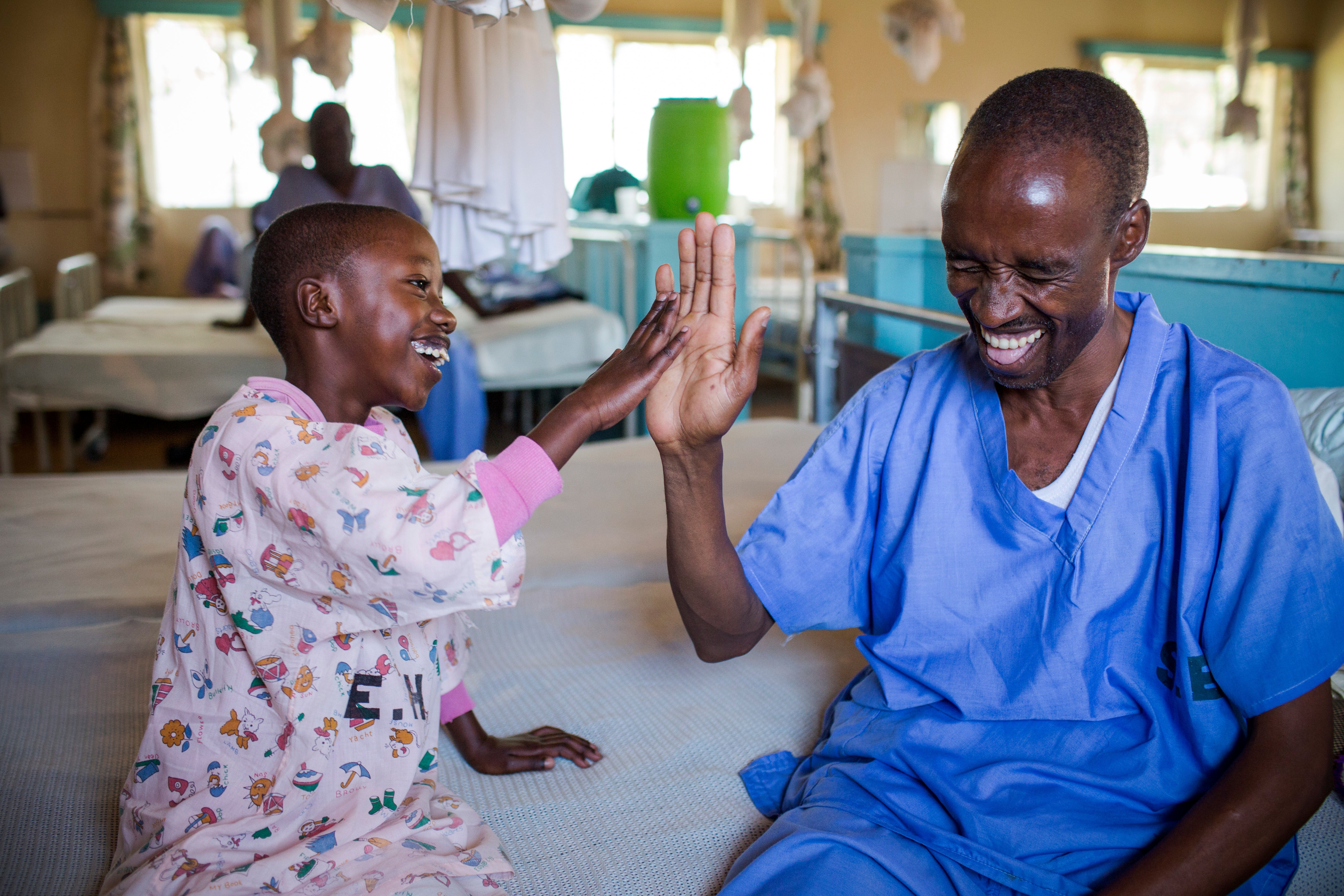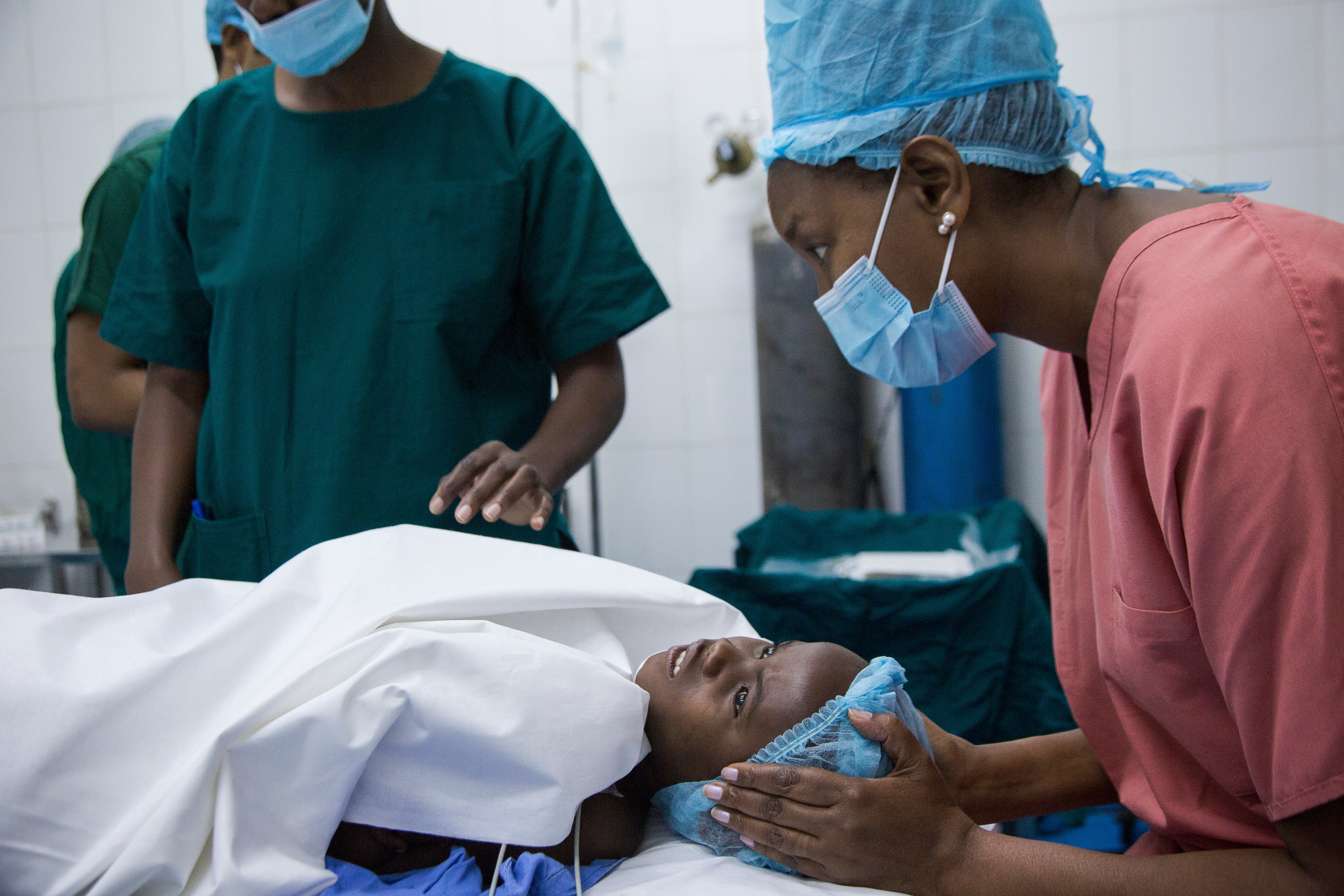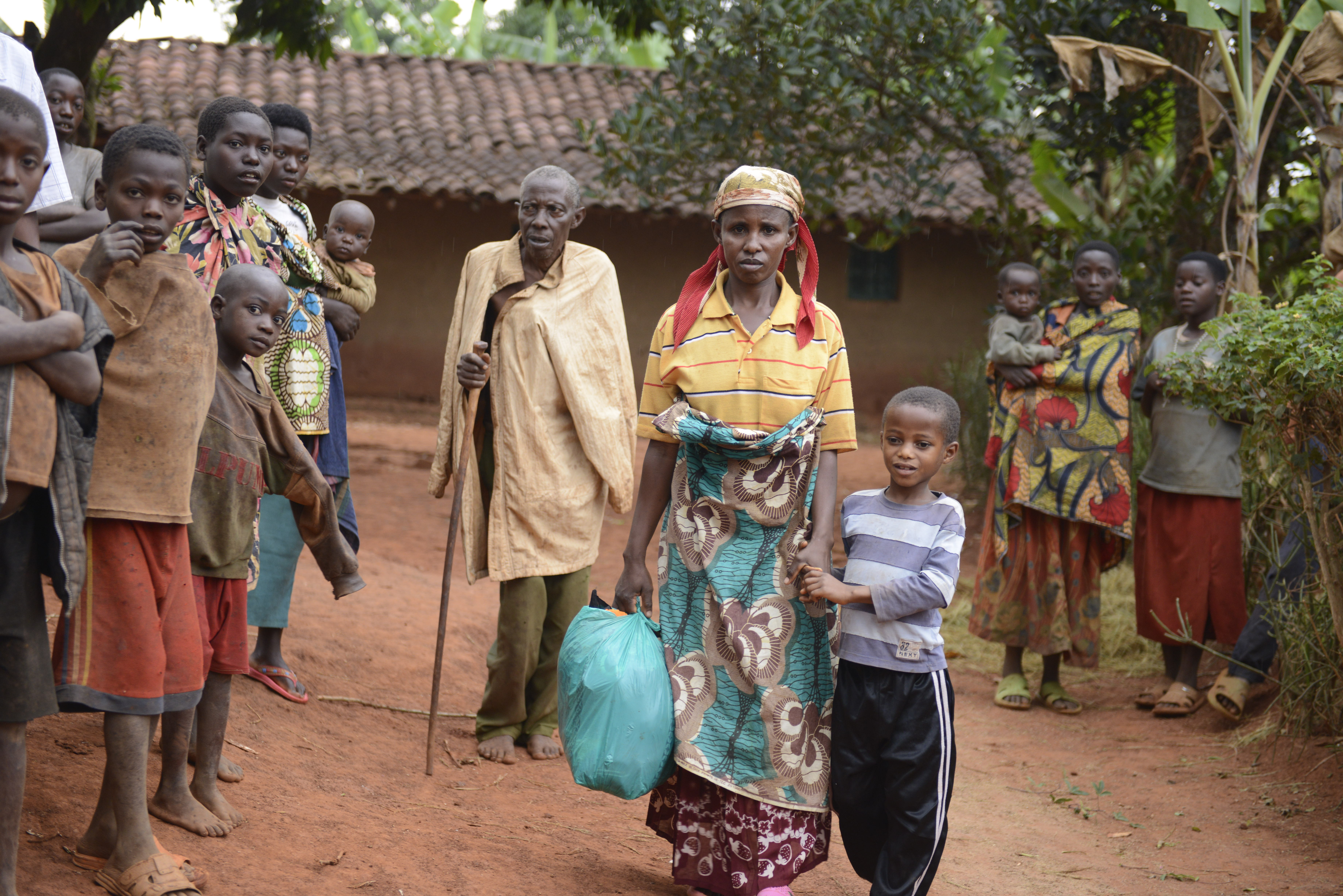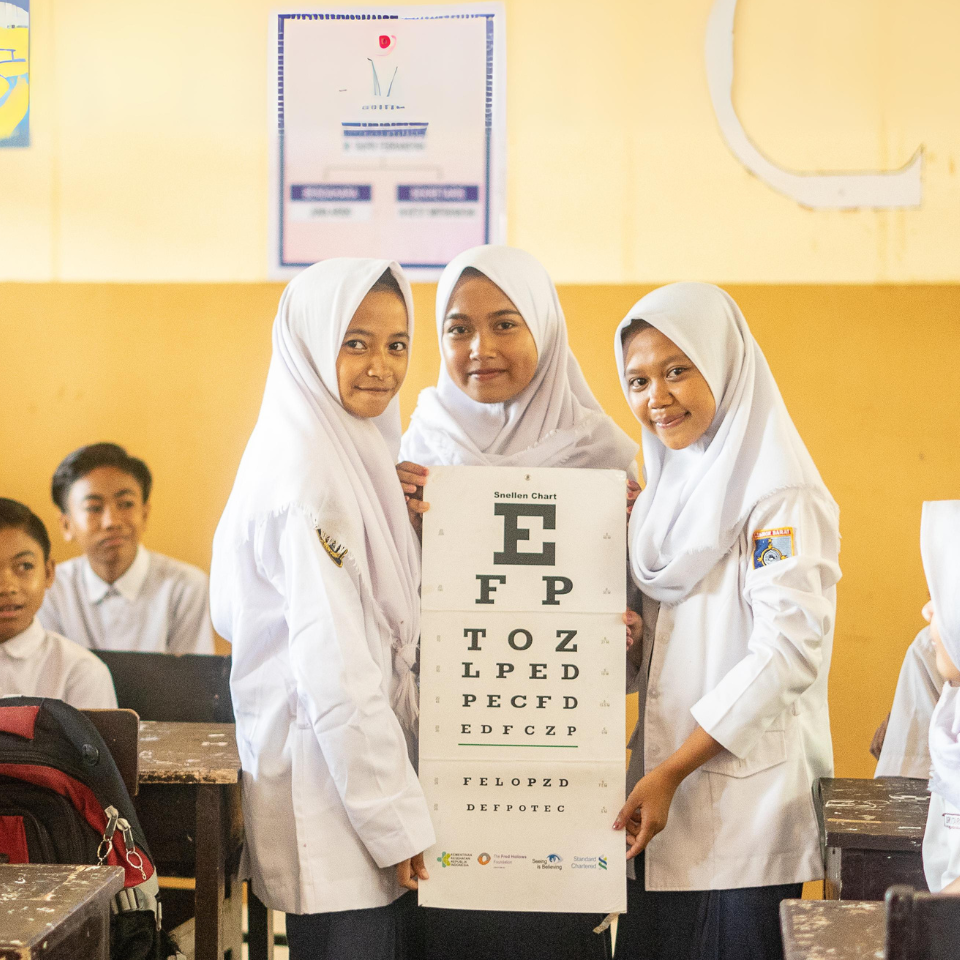The Foundation has developed key approaches to achieve impact in eye health, informed by The World Health Organization’s systems framework, and delivered through a health system strengthening approach to improve equity, quality, efficiency, and sustainability.
This has been your impact over the last year
In 2023, The Foundation focused on building a powerful eye health network with other partners and organizations to achieve more – and this is having a huge impact! The Fred Hollows Foundation hasn’t stopped for 30 years, and we won’t stop until no one faces a future of avoidable blindness.
This year will be our toughest year yet, and now more than ever we will rely on our loyal donors to continue our life-changing work. Thank you for staying with us! Like what you see? Give us a like, share this video, and subscribe! Subscribe to our channel here.
Treat, train, equip
We can create sustainable change and expand the reach of eye care services by investing in local people, training local doctors, nurses, clinical, and community staff, and equipping facilities. This will expand the reach of eye care services and create sustainable change, ensuring the poorest and most marginalized groups can access free or low-cost care.
Our Impact
With the help of our partners, we are tackling avoidable blindness by training thousands of local eye health workers.
As highlighted in our most recent annual report, we trained 36,804 eye health workers globally in 2023 alone, including:
- 232 surgeons
- 27,127 community health workers
- 4,202 teachers

Health system strengthening
We work to effectively integrate eye health care throughout the health system to deliver high-quality, efficient, sustainable, and accessible eye health education and care.
We develop local leaders to manage health systems and embed quality improvements that encourage innovation and reward performance. We work with governments to ensure adequate financing for essential eye health services and strengthen data and regulation standards.
Our impact
Working with our partners, we are equipping facilities and providing innovative solutions to eye health challenges.
As highlighted in our most recent annual report in 2023 alone, this is our global impact:
- 1,951 medical facilities, training centres and schools built, renovated or equipped.

Engage and empower communities
People are at the center of everything we do. We strive to respond to the needs of local people and empower communities to access eye health services and demand better care.
By raising awareness about eye health, we address some of the barriers to treatment. We focus on ensuring marginalized groups, including women and Indigenous communities, have a voice and enjoy equitable access to eye health.
Our impact
Working with our partners, we are ensuring people can access high-quality eye care that’s affordable:
As highlighted in our most recent annual report, we have provided 612,376 eye operations and treatments globally in 2023 alone, including:
- 147,764 cataract operations
- 30,814 surgeries to treat trachoma
- 9,401 diabetic retinopathy treatments
- 424,397 other sight saving or improving interventions
As well as:
- 4,435,157 people screened
- 6,866,281 people treated with antibiotics for trachoma
- 154,476 pairs of glasses distributed

9 out of 10 people who are blind don't need to be
Right now, 9 out of 10 people who are blind don’t need to be.
In many cases, these people are blind because of poor health, a lack of access to medical services, and because they live in poverty.
Treatable or preventable eye diseases such as cataract, trachoma, refractive error and diabetic retinopathy can lead to blindness, if left unexamined.
But we know avoidable blindness can be eliminated throughout the world.
Read the stories of some of the people we've helped.
